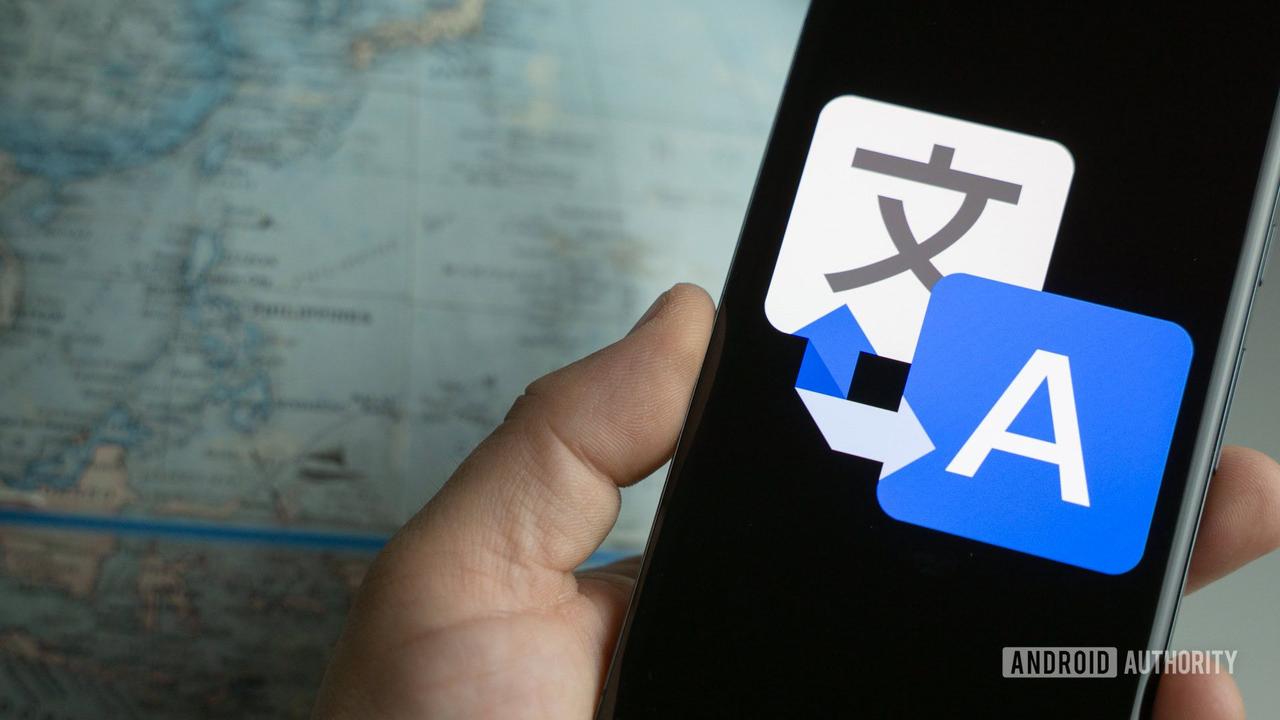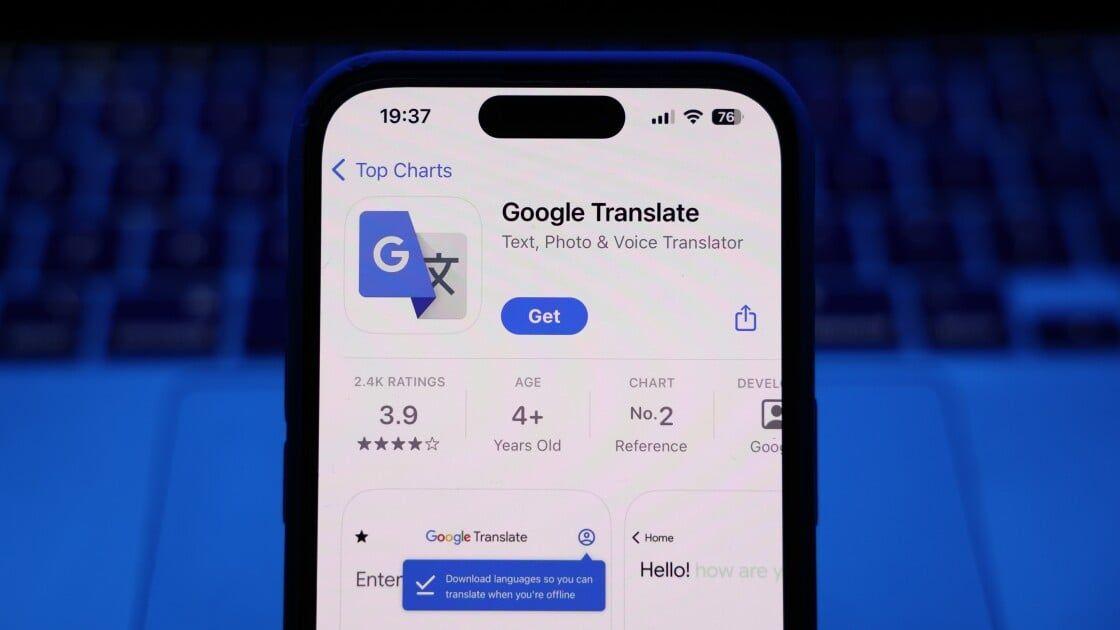Google Translate's New AI-Powered Practice Feature: A Potential Rival to Duolingo
2 Sources
2 Sources
[1]
Here's How Google Translate Might Take on Duolingo
Over the last two decades, Google Translate has been a go-to tool for many to understand words and phrases, but soon, it may also be able to teach you a language from scratch. Google has yet to announce this feature, but Android Authority was able to activate a long-rumored Practice feature hidden within the latest version of the app. The publication first reported on the existence of this tool in April, but this is the first time it has been seen in action. The site played around with elements of the AI-led features within Translate, captured in the screen recording below. Google's messaging in the app says the features are in beta. Screenshots show that Google Translate will use AI to create personalized lessons. You can select the language you want to learn. English, Spanish, French, and Portuguese are currently supported, but only French and Spanish are working, according to Android Authority. You're then asked whether you have Basic, Intermediate, or Advanced levels of knowledge, and it shows you scenarios to choose from for practice, such as work basics or ways to describe a job. You can also put together your own scenarios with a prompt. This may be helpful if you're about to go on a trip, and you want a tailored crash course in a language. For example, you could specify that you're going skiing, so you want to learn terminology before you hit the slopes. After you've completed a lesson, you're asked whether you want to tweak the difficulty for future lessons to make it easier or harder. Android Authority also noticed that the app mentions a "trial period," which suggests it will launch for free but may one day cost money, perhaps as part of a top-end Google Gemini package. (As ever with leaked information, take this with a grain of salt. There's no guarantee Google will ever release it.) In April, Google began testing other language-learning tools using AI within its Labs projects, but none of these were affiliated with the official Translate apps. They were smaller games using AI to test your knowledge of a language, rather than teaching you from scratch. AI appears to have a major role in the future of language learning. Earlier this year, Duolingo CEO Luis von Ahn announced a move toward becoming an "AI-first" company. At the time, he said the company planned to eliminate all contract workers to focus on AI-generated content. After backlash from Duolingo users, von Ahn reversed his stance. He has since told the Financial Times he didn't "expect the amount of blowback." Like what you're reading? Don't miss out on our latest stories. Add PCMag as a preferred source on Google.
[2]
We went hands-on with Google Translate's Duolingo rival ahead of its launch (APK teardown)
The feature currently lets you practice French or Spanish in a variety of preset scenarios, but you can also create your own lessons. Earlier this year, we discovered evidence that Google was working on a new Practice feature in Google Translate. This would allow people to (surprise) practice a desired language. Now, we've managed to activate the feature and go hands-on with it. Telegram user Mehrad spotted the Practice option in their Google Translate app. We weren't able to see the feature initially, but we managed to enable it after digging into the latest version of the app (version 9.14.71.788519780.3-release). Check out the screenshots below and the video above. The first screen confirms that the Practice feature is in beta and creates personalized lessons. However, the screen also mentions that this is a "trial period" with "early and unlimited access." This suggests that Google will eventually charge people to use the feature. It's unclear whether this would be a standalone fee or bundled in with the company's AI subscriptions. The second screenshot also confirms that you can display the UI language in English, French, Spanish, and Portuguese. However, you can only practice in French or Spanish right now. Once you've picked your desired language to practice, you can then choose your level of proficiency (Just Starting, Basic, Intermediate, Advanced). However, the Just Starting level is greyed out at the moment. Google Translate then lets you choose from a variety of scenarios to practice (see the fourth and fifth screenshots). The listed scenarios include food and drink, greetings and introductions, and asking for directions. These scenarios are further divided into subtopics. For example, "asking for directions" includes subtopics like getting lost near the hotel, finding a specific restaurant, and locating the train station. Not happy with these scenarios? Then you can tap Create your own practice scenario to come up with a brand-new plan. You can simply use a text prompt to describe your custom scenario, although Google Translate also offers suggestions like "Ask for a vegetarian food option" and "Passing immigration." You can also choose whether this scenario is a listening or speaking session. Finally, we spotted a settings page where you can change your proficiency level and language after the fact. This page also has an option to delete your practice history. Either way, our teardown shows that Google's take on Duolingo is effectively ready for release. Furthermore, the fact that a Telegram user spotted this in their app suggests that Google is already testing this in a limited fashion.
Share
Share
Copy Link
Google Translate is testing a new AI-driven Practice feature that could transform it into a personalized language learning tool, potentially competing with established platforms like Duolingo.
Google Translate's New Practice Feature
Google Translate, a widely-used tool for understanding foreign languages, is poised to expand its capabilities with a new AI-powered Practice feature. This development, uncovered by Android Authority, could transform Google Translate into a comprehensive language learning platform, potentially rivaling established apps like Duolingo
1
.
Source: Android Authority
Feature Overview and Functionality
The Practice feature, currently in beta, offers personalized language lessons. Users can select from English, Spanish, French, or Portuguese interfaces, although only French and Spanish are currently available for practice
2
. The app assesses the user's proficiency level and provides tailored scenarios for practice, such as work basics or describing a job.One of the standout features is the ability to create custom scenarios using AI. This allows users to prepare for specific situations, like learning ski-related terminology before a winter vacation
1
. After completing a lesson, users can adjust the difficulty for future sessions, ensuring a personalized learning experience.Technical Details and Availability
The feature was discovered in version 9.14.71.788519780.3-release of the Google Translate app. While Google has not officially announced this feature, it appears to be in limited testing. The Practice option includes various preset scenarios divided into subtopics, offering a structured learning approach
2
.Potential Monetization and Market Impact
Interestingly, the app mentions a "trial period," suggesting that while it may launch for free, it could eventually become a paid feature. This aligns with the growing trend of AI-powered services and could potentially be part of a premium Google Gemini package
1
.Related Stories
AI's Role in Language Learning
This development reflects the increasing role of AI in language education. Earlier this year, Duolingo's CEO Luis von Ahn announced plans to make the company "AI-first," initially proposing to eliminate contract workers in favor of AI-generated content. However, this decision was later reversed following user backlash
1
.Implications for the Language Learning Market

Source: PC Magazine
Google's entry into the language learning space with an AI-powered tool could significantly impact the market. With its vast resources and the widespread use of Google Translate, this new feature has the potential to challenge established players like Duolingo.
As AI continues to reshape various sectors, including education, Google's move demonstrates the technology's potential to create more personalized and efficient learning experiences. However, as seen with Duolingo's experience, the integration of AI into language learning platforms may face challenges and require careful consideration of user preferences and ethical implications.
References
Summarized by
Navi
[1]
Related Stories
Google Translate Set for Major AI Upgrade with Gemini Integration and Language Learning Features
19 Aug 2025•Technology

Google Translate Unveils AI-Powered Live Translation and Language Learning Features
27 Aug 2025•Technology

Google Unveils AI-Powered Language Learning Tools to Revolutionize On-the-Go Education
30 Apr 2025•Technology

Recent Highlights
1
Google Gemini 3.1 Pro doubles reasoning score, beats rivals in key AI benchmarks
Technology

2
Meta strikes up to $100 billion AI chips deal with AMD, could acquire 10% stake in chipmaker
Technology

3
Pentagon threatens Anthropic with supply chain risk label over AI safeguards for military use
Policy and Regulation





